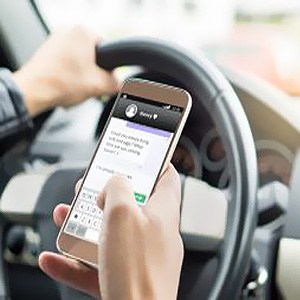Call Now To See How We Can Help!

Apple is being sued by a family as a result of a tragic automobile accident that occurred several years ago. The accident happened shortly before Christmas when a family of four was traveling in their Camry on a highway. When the Camry had to come to a stop because of police activity on the road ahead of them, the driver who was behind the vehicle did not see the brake lights and did not stop the vehicle. The driver was using Apple’s FaceTime, which is a video chat app. His SUV slammed into the family’s Camry at full-speed, injuring all four occupants.
Both the father and a five-year-old child in the back of the car were trapped inside of the vehicle and had to be extracted. While the father was able to survive the incident, the little girl passed away from her crash injuries. At the crash scene, FaceTime was still running in the iPhone when police found it. The man has now been charged with manslaughter, according to the Washington Post.
The family of the little girl who was killed has filed a lawsuit against Apple and is claiming the company should be held accountable since the company did not disabled FaceTime when the man was driving.
The family claims that Apple has the ability to disable apps while someone is driving because the phone can detect if someone is traveling at highway speeds. It is true technology does exist that could accomplish this. In fact, Apple had actually gotten a patent in the past for a program that would lock people out when driving.
The problem is, there is not technology that could definitively detect whether the phone user was the person actually driving, rather than just a passenger in the car. Furthermore, the technology cannot tell the difference between someone who is driving versus someone who is on some type of public transportation, like a bus or a train.
The impracticality of preventing a driver (and only a driver) from accessing apps is one reason why phones currently don’t do this. Another is that, as Apple says, it is really the responsibility of the driver to use the phone in a responsible way and not use distracting video chat apps while driving.
This case is far from the first time someone has tried to hold a phone company responsible for a distracted driving crash. New York Times reported on a 2003 case in which Cingular was sued by the victim of an accident that had occurred when a motorist was talking on a Cingular cell phone. The case in 2003 was dismissed because Cingular had no duty to or relationship with the victim and because the crash was said not to be foreseeable.
Today, distracted driving is a common cause of crashes and it is certainly foreseeable that someone using a FaceTime app would cause a crash to happen. Still, the absence of a relationship between Apple and victims of distracted driving crashes could mean the company will not be found liable for losses.